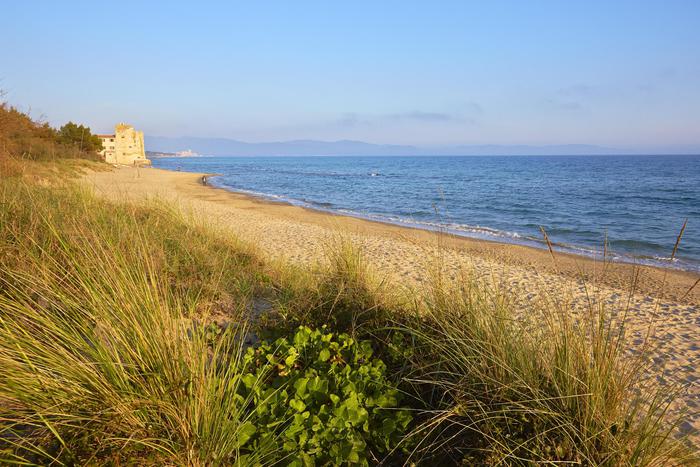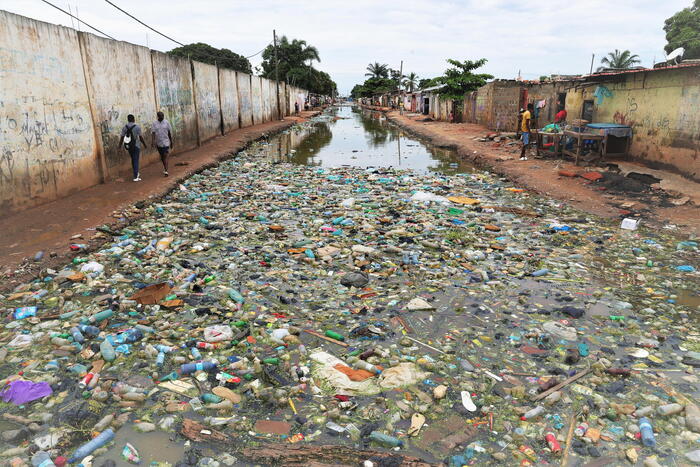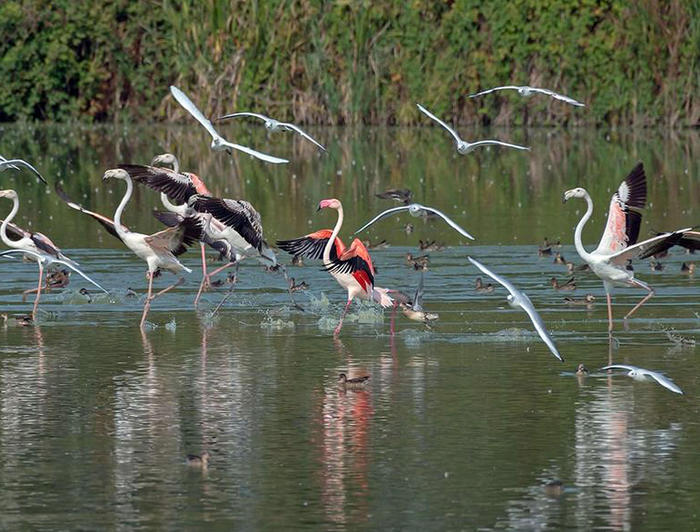Just 1.27% of the Mediterranean is actually protected while the world's leading scientists agree that at least 30% of the sea should be protected. The economic analyzes of WWF 2020 show that all the seven main maritime sectors - from maritime transport to aquaculture, from pleasure boating to recreational and small-scale fishing - are based or compete on key marine areas, leaving them in a state of serious exhaustion . Italy is one of the richest countries in Europe and in the Mediterranean in terms of marine biodiversity, which provide a very high natural capital: carbon sequestration supplied by our seas is worth between 9.7 and 129 million Euros per year, while the protective function of seagrass meadows against coastal erosion has an estimated value of approximately 83 million Euros per year. Hence the initiative of the WWF 'A Blue Recovery plan' which shows a worsening of the ecological and economic prospects of the Mediterranean in 2020 and indicates a series of priorities for healthy ecosystems and jobs by 2030.
"In the Mediterranean - underlines the WWF in the report created on the occasion of the Oceans Day - ecosystem services are at high risk: 33% of Italian marine habitats of Community interest, including posidonia meadows, macroalgae and coral forests, present a inadequate conservation status ". This, explain the experts of the environmental association, "due to the high pressures to which Italian seas and coasts are subject: in 2015 Italy was in third place in Europe for the volume of freight traffic by sea and the first for the number of passengers, the first cruise destination in Europe, with 700 ports, one of the largest fishing fleets in Europe and a booming aquaculture sector ".
Working together with a blue economy for the Mediterranean that can generate a value of around 400 million euros per year, the equivalent of more than half of the Recovery Fund proposed by the EU. This is the appeal launched by the WWF to the 22 coastal countries and territories "for the recovery of the Mare Nostrum devastated by the COVID-19 pandemic and which is painstakingly heading towards an unpromising tourist season". A "Blue recovery plan" (A Recovery Plan), underlines the WWF "that can only get underway if effective sea protection and sustainable economic development become the norm". "The Mediterranean is a concentrate of biodiversity that the whole world envies us, with over 17,000 species, evocative landscapes, rich in culture, traditions", underlines the president of WWF Italia, Donatella Bianchi. And he adds: "The countries that share this great 'marine oasis' therefore have a huge responsibility towards their citizens and our proposal points to a sustainable future of the sea, for the world to come".
"Ecological disasters, rising temperatures, refugee crisis, unemployment and last but not least, the pandemic: the Mediterranean region - explains the director of the WWF Mediterranean Marine Initiative, Giuseppe Di Carlo - is in a constant state of emergency, unable to The Mediterranean map sees a large blue basin in the center that holds the 22 coastal countries together. The sea is the only and most important natural and economic treasure we have. And this is where we must invest if we want to have the possibility of a real and long-term recovery. The recent interruption of some maritime activities due to Covid-19 confirmed that if we reduce the pressure on the sea, fish stocks and marine habitats could quickly rebuild and provide the resources necessary to support our socio-economic recovery ". And fishing, WWF points out, is a key sector in how the survival of an economic sector depends on environmental sustainability. "Years of overfishing - the WWF affirms - have made the Mediterranean the most exploited sea in the world with consequences on the sector: many fishing activities have collapsed, the fleets are shrinking and small fishermen are forced to leave their jobs while young people leave by communities. Better fisheries management and greater marine protection would allow the sector to get back on its feet and work sustainably. In addition, fishermen must share the sea with other growing sectors: aquaculture has quadrupled in the last 20 years and represents already more than half of the total production of fish in the Mediterranean, while sea transport could grow by 4% per year ". Tourism, despite the possible slowdown due to COVID-19 restrictions, has also seen strong growth in recent years. And from today in Italy and throughout the summer, WWF Italia has also started GenerAzioneMare: in its third year, this campaign has built a real community with volunteers, citizens, scientists, fishermen, companies, all united for defend the Blue Mediterranean heritage.














